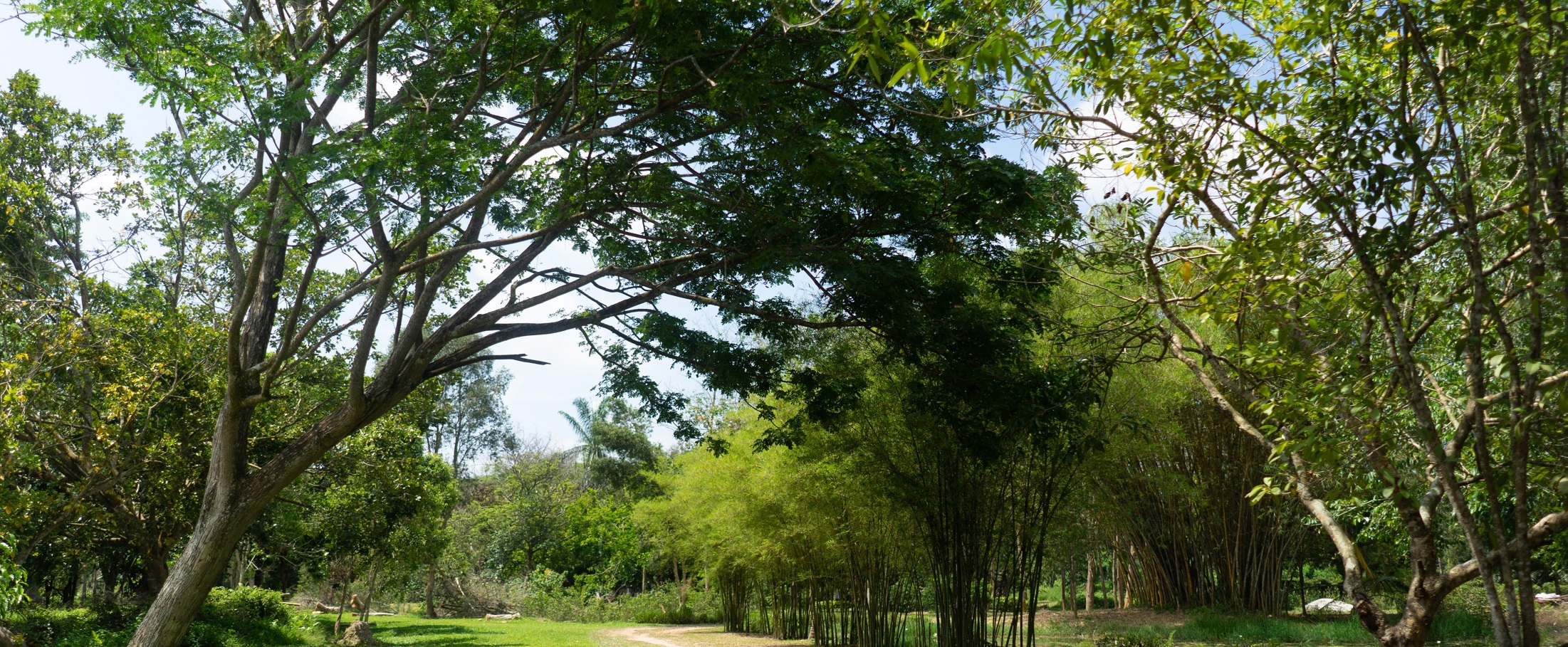Supporting Suppliers’ NDPE Commitments

OVERVIEW
Monitoring risk within the supply chain.
We use a combination of internal and external evaluation methods to assess third-party and SDP-owned suppliers for the risk of deforestation and peat clearance. These methods include desktop analyses, due diligence on potential and existing suppliers’ information, and external monitoring initiatives to visually map risk areas in our supply chain.
SDP is alerted on any potential deforestation through satellite monitoring detection systems, such as Earthqualizer’s platform (carried out in partnership with Aidenvironment) and Radar Alerts for Detecting Deforestation (RADD). Earthqualizer uses their proprietary database of oil palm mills and plantations on maps of natural forests, spanning 20 million hectares in Malaysia, Indonesia and Papua New Guinea, where we source most of our supply. It provides SDP with bi-monthly internal reports on potential occurrences of deforestation and peat clearance. Our alert assessments are augmented by RADD, a radar-based monitoring system that makes deforestation alerts publicly available on the Global Forest Watch and Global Forest Watch Pro platforms. RADD was developed in 2018 by Wageningen University and Satelligence. It is facilitated by the World Resources Institute (WRI) and funded by 10 major palm oil players, including SDP. RADD became fully functional in 2021 and is an integral component of our deforestation alert process.
When an alert is triggered, SDP further investigates the incident to confirm potential non-compliance. If the alert involves a direct supplier, we engage with them and require them to submit evidence and documentation proving they did not cause the incident. If they did cause the incident, we require them to submit proof they completed the required assessments before clearing began. If the alert involves an indirect supplier, we engage with the respective third-party trader who connected us with that supplier to enquire on the status and progress of investigation and outcomes. Any confirmed breaches will trigger the remedial measures in our Draw the Line policy.
Read more about our monitoring approaches
Assessing risk and supplier engagement

We assess the risk levels of our suppliers to guide our engagement approaches every quarter. Suppliers confirmed to have engaged in non-compliant land-clearing activities are flagged as high risk and prioritised for engagement. Medium-risk mills are those where breaches have been detected and are either under investigation or resolved. They remain on our radar as medium-risk mills until they are verified to be free of high-risk activities. Low-risk suppliers represent mills where there has been no detected activity.
We engage all high-risk suppliers on a priority basis every month to ensure compliance and investigate further non-conformances. In 2021, we identified 2% of our suppliers as high-risk and have commenced engagement with them.As per our Draw the Line policy, suppliers must take remedial measures in the event of a confirmed breach. They must immediately stop working on the affected land, develop a remediation plan (including conducting the necessary High Conservation Value-High Carbon Stock Approach (HCV-HCSA) assessments), and create an action plan to meet our commitments. If they are unwilling to implement these measures, our policy is to remove them from our supply chain.
However, we firmly believe that suspension is not the end of the road. To truly help end deforestation risks and ensure non-compliant supply does not enter markets and leak into the system, we must continue to engage with all actors and collectively work towards shared goals. Our ultimate aim is to expand the number of palm oil companies adhering to NDPE standards. Therefore, if a non-compliant supplier commits to meeting our conditions, we will re-engage with them and support their progress.
See Managing grievances for an overview of all grievances in 2020-2021
In-depth assessments and engagement with supplying mills in Indonesia
In 2021, Sime Darby Oils developed and rolled out a dedicated due-diligence assessment against our Responsible Sourcing Guidelines (RSG) for direct third-party mills supplying our Pulau Laut refinery in Indonesia. Combining spatial and non-spatial data, we screen and evaluate suppliers to inform our sourcing decisions. Non-spatial data includes a desktop review of news and reports on legal, community, environmental, and liability matters. A spatial data review uses the Global Forest Watch Pro (GFW Pro) platform to look at forest cover, peat, and protected areas in a supplier’s sourcing zone. We applied this approach to existing and potential suppliers. In 2021, a total of 97 new and 41 existing suppliers were assessed in accordance with this due diligence framework.
In September 2021, we launched another programme with four suppliers undergoing due diligence assessments. The RSG Derivation Standard identified gaps in complying with our RSG requirements, resulting in customised action plans that provided each supplier with guidance and support to meet each requirement. SDP will track progress against these action plans and support suppliers in fully complying with our NDPE commitments.
From August to September 2021, we also conducted a series of seven knowledge-sharing webinars on our NDPE requirements and related topics and made them available to all suppliers. A total of 237 participants attended, all of whom are suppliers belonging to 22 parent groups. Due to positive uptake, SDO will continue to host sessions throughout 2022.
Webinar topics included:
This more rigorous assessment and engagement approach for direct suppliers in Indonesia is a first for the Group. We aim to develop similar programmes at our other refineries tailored to the specific trader-buyer relationships existing at each of these locations.
Suppliers’ progress on no deforestation commitments

Achieving a no-deforestation supply chain is important to our climate goals and carbon reduction strategies.
We have identified that 30.8% of all supplying mills and 75.8% of traceable volumes sourced are Roundtable on Sustainable Palm Oil (RSPO) certified, including SDP mills. Because they adhere to this standard, we know the supply from these mills is mostly in line with our NDPE commitments, and supports our understanding of which suppliers are making progress against these commitments.
Every six months, we assess all supplying mills for compliance with NDPE requirements using the NDPE Implementation Reporting Framework (NDPE IRF). Developed by Proforest with the support of various conveners, companies, practitioners, and stakeholders in the palm oil sector, this reporting tool is designed to help companies systematically understand and track progress in delivering on our NDPE commitments in our palm oil supply chain. At both the mill and production levels, the NDPE IRF tool allows us to collectively understand what is required to deliver on NDPE commitments, monitor progress, identify gaps in implementation, and drive improvements. The framework currently covers No Deforestation and No Peat criteria, whilst its No Exploitation component is under development.
Our global profiles show that 75% of suppliers are either delivering on or making progress against their NDPE commitments in 2021. This high percentage is because most of our supply comes from SDP mills, which are RSPO certified. We continue to engage supplying mills that need support to understand and meet their NDPE commitments through programmes like our supplier workshops in Indonesia. We have targeted 100% of our suppliers complying with NDPE requirements by 2025. The NDPE IRF will be instrumental in tracking their progress, and we will begin third-party verification of NDPE IRF reporting by 2023.
IRF profile by refinery available here
Note: Data is as of Q2 2021
Challenges to monitoring social risks in supply chains
[GRI 3-3, 308-1, 308-2]We have made significant progress in addressing No Deforestation and No Peat commitments within our operations and supply chain, aligned with the latest industry developments and best practices. However, we recognise that we must equally emphasise No Exploitation. We further acknowledge that technology and monitoring can detect deforestation and peat clearance issues, but social breaches within supply chains are not as easily discerned.
Our current approach to assessing suppliers against No Exploitation commitments is through our grievance mechanism. Breaches of social requirements are usually raised through grievance channels and public media reports. We report any risks identified through this process in our Supplier Grievance Register, which is publicly available on our website and details the affected supplier, the issues identified, the actions taken, and the status of each case.
We are developing proactive ways to monitor our supply chains in 2022 and beyond by applying best practices and learnings from our current efforts within SDP's own operations.
At the same time, we have engaged in industry-wide conversations and collaborations on the best ways to address social issues. One such avenue is our participation in the Palm Oil Collaboration Group’s (POCG) working group to address social issues. Launched in 2020, this working group focuses on integrating Human Rights Due Diligence into management systems. It employs a collaborative approach to ensure responsible recruitment in Malaysia and identify tools to effectively address the rights of Indigenous peoples and local communities. SDP is also part of the RSPO Human Rights Working Group, helping to ensure human rights are upheld as outlined in the RSPO Principles and Criteria.







